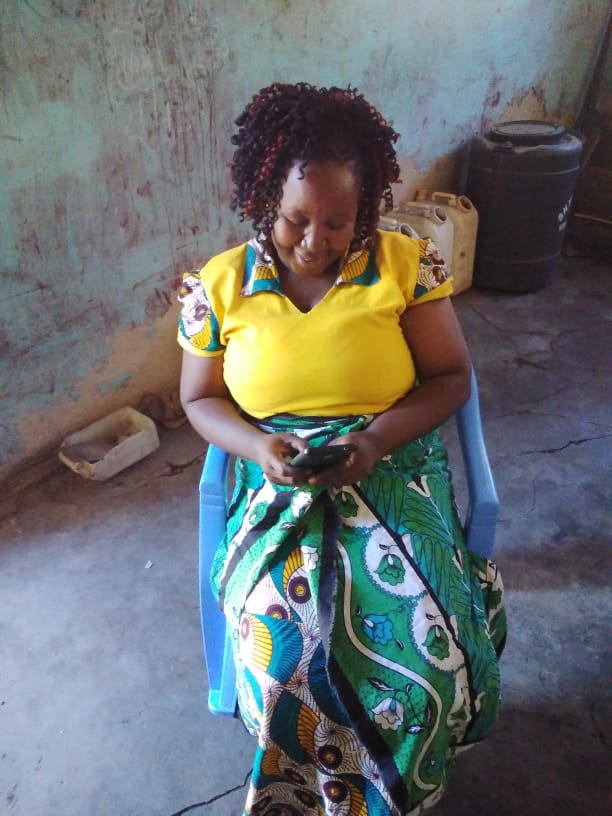|
Getting your Trinity Audio player ready...
|
By Tebby Otieno
Tana River, Kenya: Busara Naaman was deep in her sleep at 3 AM when a loud knock at her bedroom door interrupted her sleep.
Her nanny was standing at her door, phone in her hand, saying she had urgent news to tell her. Her parents had called her at 2 am with news of a possible cure for COVID-19.
There was no time to waste for the nanny, so she woke her boss.
“I drank tea with salt, not sugar. So it was a lot of tea leaves and salt so that we protect ourselves from coronavirus,” Naaman narrated.
“According to a story from the village, a baby was born and that baby spoke for a few seconds. He told people that they should drink tea and salt as early as 3 am so that they can protect themselves from corona, so that is what we did,” she recalls.

Naaman’s village is in Tana River county, located in the Coast of Kenya. The only person she trusts and thought could be easy to reach at that particular hour to verify the information is her father. The reason being he stays within the area and the message about black tea came from him as they have a tight father-daughter relationship.
“I called my father at 3 am and asked him, did you hear the story? He said yes. So I asked him, what do you think we should do?” Said Naaman, mimicking her conversation with the father.
“He told me it is good to do what people are doing because if you don’t, what if it is the last time many people are going to heaven and you don’t do it? It means that you stay behind. So don’t lag behind,” narrates Busara.
“I look up to my father so much. I ask him for any kind of advice and he told me, you know what? Just drink it, so we drank it,” she reveals.
She also woke up her eight-month-old baby who was deep asleep only to observe her struggle with this magical drink.
“My daughter was an infant. It was so painful to watch her drink that thing (Black tea with salt),” she said.
During this time, classroom education had been suspended in Kenya to minimize the spread of coronavirus. One of the children who received a phone call from a relative is a student who also passed messages to her elderly parents.
Hahoya Nuru, also a resident in Tana River county, narrates how she also drunk the miraculous tea.
“When my daughter came with the information she told me she had received a message in her phone that before midnight everyone must have boiled tea and drink to protect themselves from getting coronavirus. Because of fear, panic, and how threatening news about COVID-19 pandemic sounded we had no other choice but to drink the black tea,” narrates Hahoya.

The 39-year-old who had not been using tea, recalls how she ended up seeking medical attention following the repercussions of the hot black tea.
“I better take the vaccine than boiling black tea or doing any other thing that has not been verified that can cause me more harm. I remember when I drank black tea, I had to see a doctor because of my ulcers,” said Hahoya.
The message about black tea was an audio recording. It went viral through a social media channel of Whats App. Those who received the message forwarded it to their relatives and made phone calls that particular night. Even though Busara Naaman, got the first message from her nanny, she confirms to have later received the same audio through her Whats App number. She can neither remember who sent it to her nor how she lost it since she got a new phone.
“It sounded like some witchcraft because they insisted that a baby boy from Tana River who was born talked a few minutes then died. So I wanted to confirm this because it was so weird but then everyone believed it that time. Even my dad drunk the black tea and it is so funny, we have a Whats App group for family, almost everyone in our family drunk salty tea,” says Naaman.
Looking back a year later, she says she is disappointed in herself that despite being an educated woman, she fell into the trap because of peer pressure of not wanting to be left out.
“You know it’s so ironical, I am the journalist here, I am supposed to be having facts. I think I was confused, it was very fast and it was late at night and everyone is drinking so quickly. You see, it was so weird that I the person who is supposed to be having information did not have,” she says.
Busara says no one in her family who drunk the salty tea either got sick or died. All thanks to the fact that it was not poisonous.
“We add sugar in our tea always but for once we did it differently. It did taste weird because salt is for stew and maybe a salad and any other dish, not tea, so nothing bad happened. I took half a cup only at that time,” she says
“I cannot do something like that again. Now I know better, I understand coronavirus better. Like the other day someone sent some misleading information about the COVID-19 vaccine in a Whats App group, I decided to verify it with my assignment editor and we found out that the message was from a fake news website,” she concludes.
The outbreak of the COVID-19 pandemic has encountered a surge of misinformation. This began at the onset of the pandemic in March 2020 with social media platforms being the major interactive technologies used in sharing leading to infodemic, a case in point being rumors about black tea.
Google search gives various results of black tea. One is a YouTube audio of an elderly male Muslim asking Muslim faithful not to fall victims to misinformation but to pray to God. The message is recorded in the Swahili language which is commonly spoken in the Coastal region of Kenya. This clip was uploaded on March 29th, 2020, and has over 6, 000 views. The speaker says clip and calls about black tea and COVID-19 were shared a night before his recorded message and says the message was false.
Facebook search also gives feedback of Melissa Fleming who is the Under-Secretary-General for Global Communications at the United Nations. On 29th March 2020, her post raised a concern on increase in the rapid spread of unreliable information about COVID-19. She said that in order to overcome coronavirus, there was a need to urgently promote facts, science, hope, and solidarity over despair and division.
“My global communications team at the United Nations will be stepping up our communications efforts to make sure people have the best, most credible information and also inspiration from examples of global cooperation and viral acts of humanity,” reads part of Melissa Fleming’s Facebook post.
While on Twitter a Social media platform the story was crried by a local media house NTV with experts dispelling the myth of black tea as a cure of Covid19.
Sturungi (black tea without sugar) doesn’t cure Coronavirus, experts say. #NTVTonight @KevinMutai_ pic.twitter.com/h39eVtO2ns
— NTV Kenya (@ntvkenya) March 30, 2020
This publication was produced as part of IWPR’s Africa Resilience Network (ARN) program, administered in partnership with the Centre for Information Resilience (CIR), the International Centre for Investigative Reporting (ICIR), and Africa Uncensored.















[…] Also, read https://www.talkafrica.co.ke/i-drunk-black-tea-with-salt-to-keep-covid-19-away-a-kenyan-journalist-r… […]
Comments are closed.